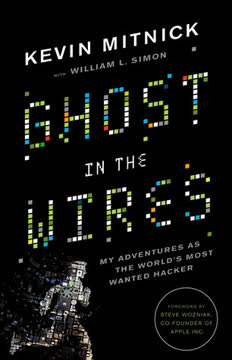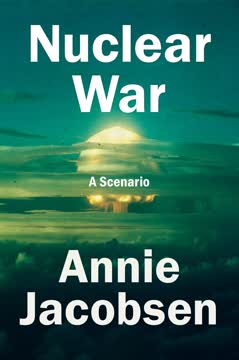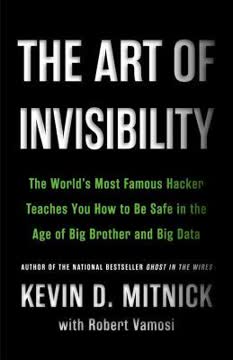Key Takeaways
1. The rise of mass surveillance in the digital age
I helped make it technologically feasible for a single government to collect all the world's digital communications, store them for ages, and search through them at will.
Technological revolution: After 9/11, the Intelligence Community (IC) sought to build a system to prevent future attacks. This led to a massive expansion of surveillance capabilities, with young technologists like Snowden at the forefront.
Shift in intelligence gathering: The focus shifted from targeted surveillance of individuals to mass surveillance of entire populations. This was made possible by:
- Advancements in data storage and processing
- Increased digitization of personal communications
- Development of sophisticated algorithms for data analysis
Unprecedented scope: The new surveillance systems could:
- Collect and store vast amounts of data indefinitely
- Search through communications of nearly anyone on Earth
- Operate with minimal oversight or public knowledge
2. Snowden's journey from patriot to whistleblower
I realized that coming forward and disclosing to journalists the extent of my country's abuses wouldn't be advocating for anything radical, like the destruction of the government, or even of the IC. It would be a return to the pursuit of the government's, and the IC's, own stated ideals.
Gradual awakening: Snowden's transformation from a patriotic intelligence worker to a whistleblower was not sudden, but a gradual process of discovery and ethical reflection.
Key realizations:
- The extent of surveillance went far beyond what was publicly known
- Many surveillance programs operated in violation of constitutional rights
- There was little oversight or accountability within the system
- The potential for abuse of these powers was enormous
Ethical dilemma: Snowden grappled with the conflict between his oath of secrecy and his duty to the Constitution and the public. Ultimately, he decided that exposing the truth was more important than maintaining secrecy.
3. The privatization of intelligence and its consequences
Contracting has become my cover, as it was for nearly all the tech-inclined spies of my cohort.
Shift to private sector: The intelligence community increasingly relied on private contractors to circumvent federal hiring caps and access specialized technical skills.
Implications of privatization:
- Blurred lines of accountability
- Potential conflicts of interest
- Revolving door between government and private sector
- Increased costs to taxpayers
Contractor dominance: By 2013, private employees were doing intelligence work as frequently as government servants, with over 21,800 full-time contractors in the IC.
4. The ethical dilemma of government secrecy vs. public knowledge
The freedom of a country can only be measured by its respect for the rights of its citizens, and it's my conviction that these rights are in fact limitations of state power that define exactly where and when a government may not infringe into that domain of personal or individual freedoms that during the American Revolution was called "liberty" and during the Internet Revolution is called "privacy."
Balancing act: Snowden wrestled with the tension between national security needs and democratic transparency.
Key considerations:
- The public's right to know about government activities
- The need for some level of secrecy in intelligence operations
- The potential for abuse when surveillance operates without oversight
- The role of whistleblowers in maintaining democratic accountability
Snowden's approach: He chose to disclose documents to journalists rather than publish them directly, allowing for responsible vetting and reporting of the information.
5. The power and dangers of unrestricted access to personal data
I realized, as one of them was explaining to me the details of his targets' security routines, that intercepted nudes were a kind of informal office currency, because his buddy kept spinning in his chair to interrupt us with a smile, saying, "Check her out," to which my instructor would invariably reply "Bonus!" or "Nice!"
Potential for abuse: Unrestricted access to personal data can lead to misuse, even within official channels.
Examples of misuse:
- LOVEINT: Analysts using surveillance tools to spy on romantic interests
- Sharing of personal photos and information among colleagues
- Potential for blackmail or manipulation of targets
Lack of accountability: The secretive nature of surveillance programs made it difficult to prosecute or punish those who abused their access.
6. The impact of whistleblowing on personal relationships
As far away from home as I was, my thoughts were consumed with Lindsay. I've been wary of telling her story—the story of what happened to her once I was gone: the FBI interrogations, the surveillance, the press attention, the online harassment, the confusion and pain, the anger and sadness.
Personal sacrifice: Snowden's decision to become a whistleblower had profound effects on his personal life and relationships.
Consequences for loved ones:
- Intense scrutiny from law enforcement and media
- Emotional distress and uncertainty
- Potential legal and financial repercussions
- Strain on relationships due to secrecy and separation
Balancing act: Snowden had to weigh his personal responsibilities against what he saw as a larger moral imperative to expose government wrongdoing.
7. The global reach and implications of surveillance technology
The Internet has become almost as integral to our lives as the air through which so many of its communications travel. And, as we've all been reminded—every time our social media feeds alert us to a post that tags us in a compromising light—to digitize something is to record it, in a format that will last forever.
Pervasive nature: Modern surveillance technology affects nearly every aspect of digital life globally.
Key implications:
- Erosion of privacy on a global scale
- Potential for political and economic espionage
- Challenges to national sovereignty in cyberspace
- Need for international norms and regulations
Long-term consequences: The digitization of personal information creates permanent records that can be accessed and analyzed indefinitely, raising concerns about future misuse and the right to be forgotten.
Last updated:
FAQ
What's "Permanent Record" by Edward Snowden about?
- Memoir of Whistleblowing: "Permanent Record" is Edward Snowden's memoir detailing his journey from a young technologist to a whistleblower who exposed the U.S. government's mass surveillance programs.
- Surveillance State: The book provides an in-depth look at the intrusive surveillance apparatus of the NSA and CIA, highlighting how it threatens privacy and democratic institutions.
- Personal Story: Snowden shares his personal experiences, ethical dilemmas, and the events that led him to leak classified documents to journalists.
- Impact on Society: The memoir discusses the implications of mass surveillance on individual freedoms and the importance of transparency and accountability in government.
Why should I read "Permanent Record" by Edward Snowden?
- Insight into Surveillance: The book offers a rare insider perspective on the operations of the NSA and CIA, making it essential reading for those interested in privacy and civil liberties.
- Ethical Dilemmas: Snowden's story raises important questions about the balance between national security and individual rights, prompting readers to consider their own views on these issues.
- Historical Significance: As a key figure in one of the most significant whistleblowing cases in history, Snowden's account provides valuable context and understanding of the events that shaped modern surveillance practices.
- Engaging Narrative: The memoir is well-written and engaging, combining technical details with personal anecdotes to create a compelling narrative.
What are the key takeaways of "Permanent Record" by Edward Snowden?
- Mass Surveillance: The book reveals the extent of the U.S. government's mass surveillance capabilities and the lack of oversight and accountability in these programs.
- Privacy vs. Security: Snowden emphasizes the importance of protecting individual privacy and civil liberties, even in the face of national security concerns.
- Whistleblowing Challenges: The memoir highlights the personal and professional risks involved in whistleblowing, as well as the ethical considerations that guided Snowden's actions.
- Call to Action: Snowden urges readers to be vigilant about their privacy rights and to advocate for greater transparency and accountability in government.
What are the best quotes from "Permanent Record" by Edward Snowden and what do they mean?
- "The government may steal a dollar, but it cannot erase the idea that earned it." This quote reflects Snowden's belief in the power of ideas and the importance of standing up for one's principles, despite government attempts to suppress dissent.
- "The freedom of a country can only be measured by its respect for the rights of its citizens." Snowden underscores the fundamental connection between individual rights and true freedom, critiquing governments that infringe on personal liberties.
- "The Internet of today is unrecognizable." This quote highlights Snowden's lament over the transformation of the Internet from a space of creativity and connection to one dominated by surveillance capitalism.
- "I decided to tell the truth." This simple yet powerful statement encapsulates Snowden's motivation for leaking classified documents, driven by a commitment to transparency and accountability.
How did Edward Snowden's career lead to his whistleblowing actions?
- Early Career: Snowden began his career in the Intelligence Community (IC) as a young technologist, quickly rising through the ranks due to his technical expertise.
- Mass Surveillance Realization: Over time, he became aware of the shift from targeted surveillance to mass surveillance, which he helped make technologically feasible.
- Moral and Ethical Conflict: Snowden struggled with the ethical implications of his work, ultimately deciding that his allegiance to the Constitution and public interest outweighed his secrecy agreements.
- Decision to Leak: His growing awareness of the government's abuses and the lack of public consent led him to collect evidence and disclose it to journalists.
What is "Homo Contractus" in "Permanent Record" by Edward Snowden?
- Definition: "Homo Contractus" refers to the privatization of government services, where private contractors perform tasks traditionally handled by government employees.
- Corruption and Loopholes: Snowden describes how this system allows for corruption and circumvents federal hiring caps, leading to a lack of accountability and oversight.
- Impact on Intelligence Community: The reliance on contractors in the IC results in sensitive systems being managed by individuals who do not directly work for the government.
- Critique of Privatization: Snowden criticizes this trend as a means of transferring public money to private entities, undermining the integrity of public service.
How does "Permanent Record" by Edward Snowden address the concept of surveillance capitalism?
- Surveillance Capitalism Defined: Snowden explains how companies monetize human connection by inserting themselves into social exchanges and selling user data.
- Transformation of the Internet: The book discusses the shift from a creative and cooperative Internet to one dominated by commercial interests and surveillance.
- Loss of Privacy: Snowden highlights how personal data is collected and sold without users' knowledge, leading to a pervasive sense of violation.
- Government Involvement: The memoir reveals how governments, including the U.S., exploit surveillance capitalism to gain intelligence, often without public consent.
What role did the Internet play in Edward Snowden's life, according to "Permanent Record"?
- Early Influence: Snowden describes the Internet as a formative influence, providing a sense of community and connection during his youth.
- Technological Expertise: His deep understanding of computers and the Internet facilitated his rapid rise in the Intelligence Community.
- Disillusionment: Snowden laments the commercialization and surveillance of the Internet, contrasting it with the open and creative space he once knew.
- Catalyst for Action: The Internet's transformation into a tool for mass surveillance motivated Snowden to take action and expose government abuses.
How does "Permanent Record" by Edward Snowden explore the ethical dilemmas of whistleblowing?
- Conflict of Allegiances: Snowden grapples with his loyalty to the government versus his commitment to the Constitution and public interest.
- Moral Responsibility: He reflects on the point at which he felt morally obliged to break the law and disclose classified information.
- Risk and Sacrifice: The memoir details the personal and professional risks Snowden faced, including potential imprisonment and exile.
- Principles and Ideals: Snowden emphasizes that his actions were guided by a desire to uphold democratic ideals and protect individual freedoms.
What is the significance of the "Tunnel" chapter in "Permanent Record" by Edward Snowden?
- Symbolic Tunnel: The chapter uses the metaphor of a tunnel to represent Snowden's journey toward his decision to leak classified documents.
- Hawaii Experience: Snowden describes his time working at an NSA facility in Hawaii, where he gained a comprehensive understanding of mass surveillance.
- Turning Point: The chapter marks a pivotal moment in Snowden's life, as he becomes fully aware of the implications of his work and the need for action.
- Insight into Surveillance: It provides detailed insights into the NSA's operations and the extent of its surveillance capabilities.
How does "Permanent Record" by Edward Snowden address the impact of mass surveillance on society?
- Erosion of Privacy: Snowden argues that mass surveillance undermines individual privacy and civil liberties, posing a threat to democratic institutions.
- Chilling Effect: The book discusses how surveillance creates a climate of fear and self-censorship, stifling free expression and dissent.
- Global Implications: Snowden highlights the international reach of U.S. surveillance programs, affecting citizens worldwide without their knowledge or consent.
- Call for Reform: The memoir advocates for greater transparency, accountability, and public debate on surveillance practices to protect individual rights.
What is the "Young Readers Edition" of "Permanent Record" by Edward Snowden, and how does it differ from the original?
- Adaptation for Youth: The Young Readers Edition is a version of Snowden's memoir adapted for younger audiences, with simplified language and content.
- Content Modifications: It omits certain chapters and details, such as "Homo Contractus" and "The Tunnel," to make the material more accessible to teens.
- Focus on Key Themes: The edition retains the core themes of privacy, surveillance, and ethical decision-making, while removing some complex or sensitive content.
- Educational Purpose: The adaptation aims to engage young readers in discussions about privacy rights and the impact of technology on society.
Review Summary
Permanent Record receives widespread praise for its engaging storytelling and eye-opening revelations about government surveillance. Readers applaud Snowden's courage and integrity, finding his motivations relatable and his actions justified. Many view him as a hero for exposing privacy violations. The book offers insight into Snowden's upbringing, career in intelligence, and decision to become a whistleblower. While some criticize parts as self-serving, most find it a compelling and important read that raises crucial questions about privacy and democracy in the digital age.
Similar Books










Download PDF
Download EPUB
.epub digital book format is ideal for reading ebooks on phones, tablets, and e-readers.




